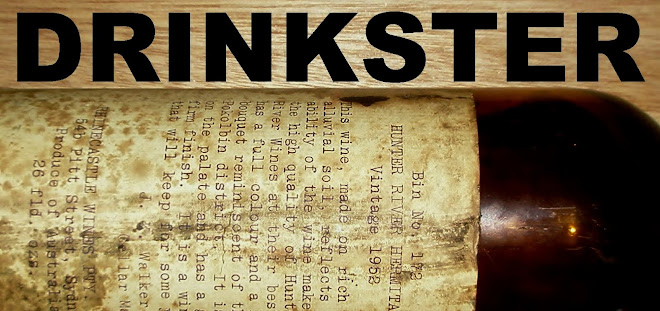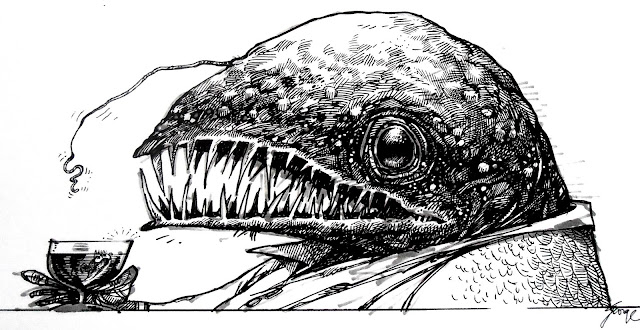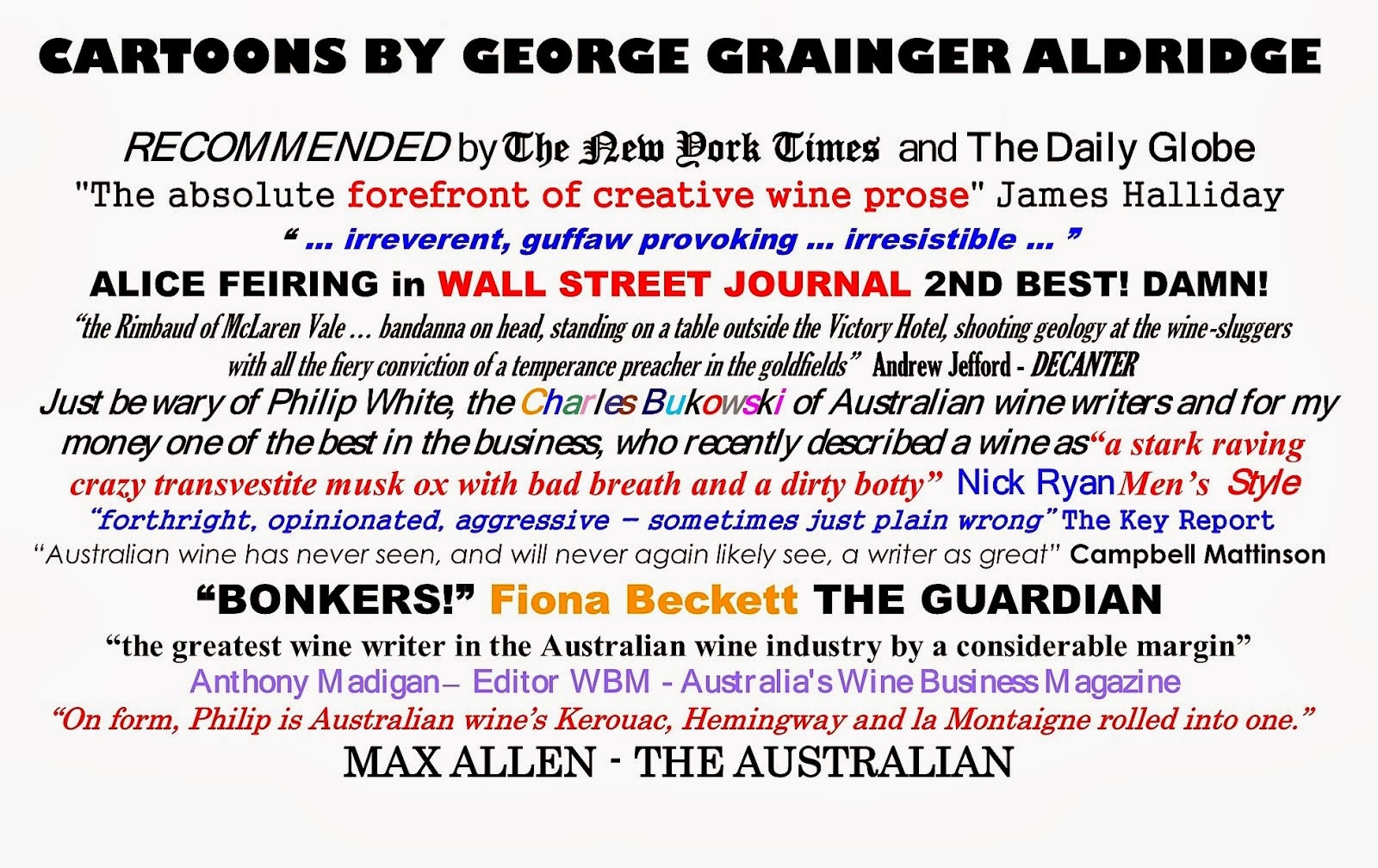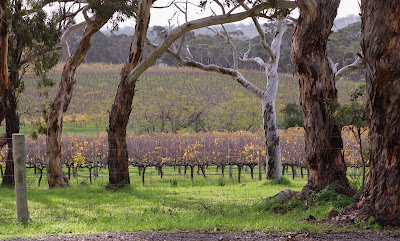 all photos (on Yangarra Estate) by PhilipWhite ... click images to enlarge
all photos (on Yangarra Estate) by PhilipWhite ... click images to enlarge12 May 2015
NOTES FROM A BROKEN SEASON
 all photos (on Yangarra Estate) by PhilipWhite ... click images to enlarge
all photos (on Yangarra Estate) by PhilipWhite ... click images to enlarge
After such a scary long dry
the rains come just in time
and nature clicks right back on
by PHILIP WHITE
The season, as they say, has broken. Cracked. Smashed. Come
a gutser. In mud. Beautiful gentle soaking rain is giving the ground round here
a drink like it hasn't had since August. I can hear it slurping like a gummy
drunk.
It came right on time. The underground tank ran out. I
depend completely on rainwater. I'm more used than most to displaying a sharp
parsimony when it comes to wasting water, having grown up on rainwater on the
edge of the Mallee in a household of at least eight and often over the dozen,
depending on the missionaries, alchies and orphans dropping in. That's probably
how I learnt not to waste it by drinking it unless it was tea. You need it for
everything else.
But lurch forward forty years. The tank dried out and I
had to ask for water from the winery crew. Within four hours of draining 1200
litres off the truck and shutting the lid it began pissing down. And it's
barely let up now for weeks. Bernard, my closest neighbour, who planted the dry-grown
bushvine Grenache out the back in 1946 says my system for triggering rain is
better than pegging the laundry out or washing the car. He reckons I should truck
in more water.
I don't recall a vintage when the vine leaves hung so
long after harvest. This usually indicates happy, balanced vines. Given the parched
details of the 2015 vintage prelude, the odds seemed stacked against contented
vines. But just look at them: the Shiraz at the front was picked two months
back, yet only this last gusty week has it let its gilt leaves go. Normally, the
leaves fall soon after harvest; sometimes before.
It's five years since the conventional petrochem vineyard
regime of sprays and fertilisers was switched off here, to be replaced by a
much more sensitive organic and biodynamic practice. I'm starting to think that
it's taken all that time for the older vines to realise that they no longer
have that industrial prophylactic. In retrospect, it's as if they'd got all
wussy of nature when they were protected and coddled with squirts of this and
that whenever they needed it, and now that they realise they've got to stand on
their own gnarled feet they seem to be putting on more stiffening lignin.
They're toughening up. Even the leaves are thicker: they were like chamois this
year. Too thick for dolmades. And in spite of the parched spring and summer,
that old Grenache delivered a record tonnage, along with splendid flavour.
I've seen some of the best wines ever from '15, although
they'll probably be few and far between. The more unfortunate wineries filled
up too fast in the early heat, forcing them to leave much fruit to over-ripen.
When leaves from vines like these that stare at me all
day do finally hit the bumfluff sward in persistent winds like we've had, they
lure many bugs and grubs to the surface. Which makes the large families of
magpies very happy. They suddenly snub my scarce parings of leftover cheese, instead
offering me amusement and delight with their intent bug-hunting skills.
In fact, the whole world out there seems like one huge savage
restaurant. The foxes are breeding, expecting the sheep to lamb. Which they
will. And the ravens gather in great mobs, anticipating the same feast. Brutes.
All the birds are on the move. An unusual swarm of noisy
miners invaded the garden the other day, chasing all the wrens away, and giving
the kookaburras hell. Then the air was suddenly full of ravens that seemed to
come from nowhere. I went out to investigate, and found that the men had just moved
the first lot of ewes from the ram paddock into the vineyard beside me, where
they'll eat the weeds through the winter. There are no lambs yet, but the
ravens know they're coming.
They're very smart, the ravens. They know what a shotgun looks
like. If I walk out into the vines with a shiny black broomstick and point it
at them, they freak, and disperse. Which they did. And then three pairs of
currawongs, which are scarce here and very furtive, appeared as if to thank me.
I reckon they hate being confused with crows: they're much better mannered and
when they trust you, more amusing. Currawongs don't eat lambs. They harvest
bugs from the cracks in the eucalyptus bark.
The goshawk that hunts along the creek is making itself
scarce, but a shiny brown falcon has been clearing the sky above the vineyard
on the flat, and I've seen a peregrine screaming past a few times at great
speed. That's a first. By the time the smaller birds spot her and panic in a
great flurry of warning skwarks, she's gone. Fastest bird in the sky, the
peregrine. I found a pigeon from the dovecote with only its brains and heart
pecked out: that'd be the perry. Such high energy raptors need all the sugar
they can get, and hearts and brains are full of it. Next day the carcase was
nothing but feathers blowing about a big dead tree stump a hundred metres off:
that'd be a fox finishing the feast. To deter Mr Reynard setting up home and
raising a family in that stump, the vineyard blokes pulled it out like a big molar. That'll end up
in the cellar sales fireplace.
It's like politics: Everything is connected to everything
else.
Johnquills are appearing under the banksia, and violets
beside the tank. They look so coy and fragile I can't face picking them for a
salad, despite being overdue for a reminder of the bouquet of fresh violets
before I next claim a Cabernet smells like them.
Which happens if you're lucky.
The sheep will get on doing what they do, turning the
grasses and weeds into handy little pellets of fertiliser. Then they'll throw
valuable lambs. Sure beats the old days of paying heaps for Roundup and
ploughing. Makes me marvel why the whole industry took so long to realise there
are better ways of doing things than squirting poison everywhere.
When the rains really hit and winter takes control, and
the creeks run again and the dams begin to fill, the pruners will move in and
cut the whole business back, ready to start again.
Fingers crossed.
Subscribe to:
Post Comments (Atom)

















1 comment:
Philip, I loved thiis backstory of the vineyard at a level of detail that few normally consider. Thank you.
Cheers Adam
Post a Comment